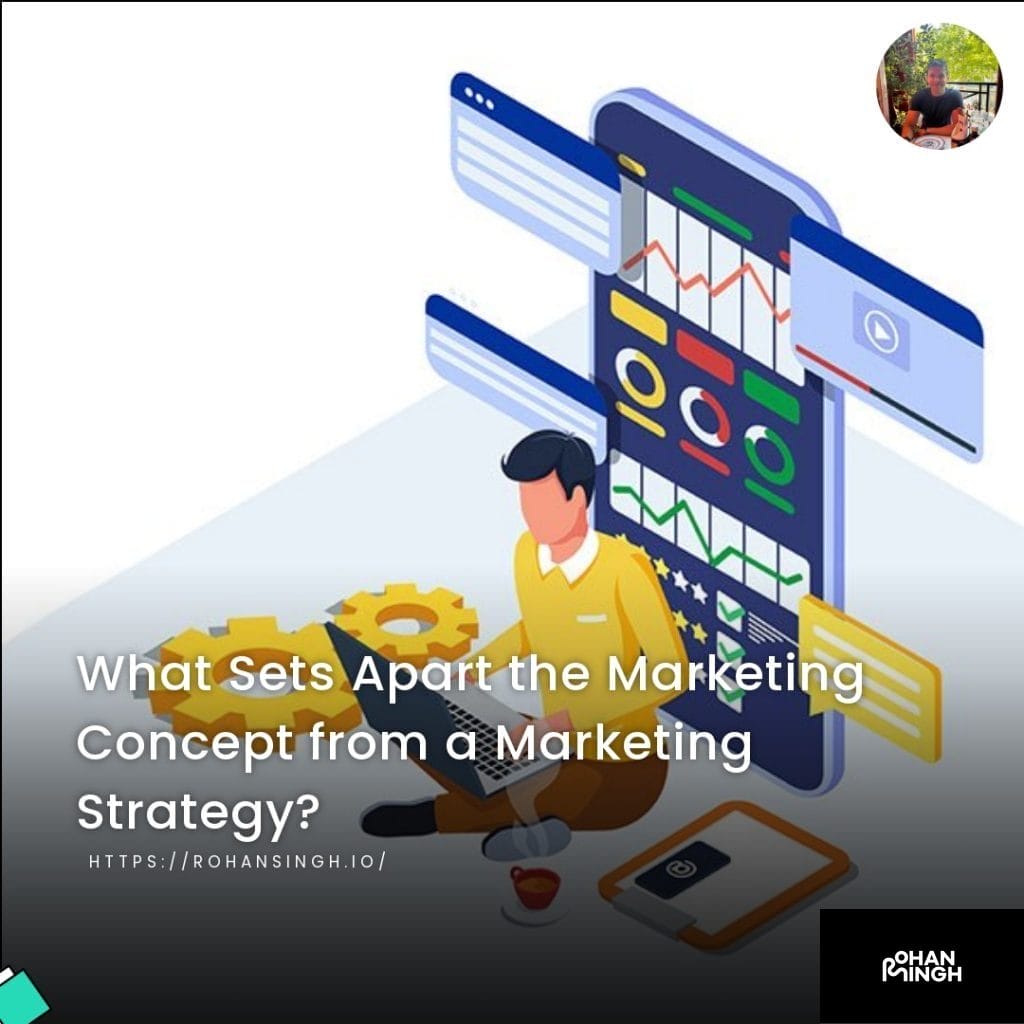Ready to Scale Your Career? How to Learn Growth Marketing in 6 Transformative Steps

What is Growth Marketing?
Growth marketing is a data-driven, iterative approach to marketing that focuses on experimenting, testing, and optimizing various strategies to achieve sustainable business growth. Unlike traditional marketing, which often relies on mass broadcasting, growth marketing identifies and targets specific audiences through a variety of digital marketing channels. By leveraging analytics and metrics to track performance and make data-informed decisions, growth marketers can continuously refine and scale their efforts. In this guide, we will outline a six-step process from beginner to expert to learn and master the art of growth marketing.
Table of Contents
ToggleStep 1: Understand the Fundamentals of Digital Marketing
Before delving into growth marketing, it’s essential to grasp the basics of digital marketing. Familiarize yourself with concepts such as target audiences, marketing channels, and digital marketing strategies. Online courses like Google Digital Garage offer free training resources to help you learn the fundamentals.
Step 2: Dive Deep into Content Marketing
Developing valuable and engaging content is at the core of growth marketing. Learn how to create relevant and optimized content to attract organic traffic. Tools like Google Analytics can provide insights into content performance and audience behavior, helping you refine your content marketing strategy.
Step 3: Explore Social Media Marketing
Social media platforms are powerful tools for reaching and engaging with your target audience. Familiarize yourself with different social media advertising techniques, audience targeting, and campaign optimization. Utilize tools like Hootsuite or Buffer to streamline your social media marketing efforts.
Step 4: Master Email Marketing
Email campaigns remain one of the most effective ways to nurture leads and drive conversions. Learn best practices for creating compelling email content, optimizing deliverability, and using marketing automation tools like Mailchimp or HubSpot to enhance your email marketing strategy.
Step 5: Harness the Power of Data and Analytics
Data is the backbone of growth marketing. Develop proficiency in tools like Google Analytics and explore advanced analytics features to gain insights into user behavior, conversion rates, and customer journey. Utilize data-driven decision-making to optimize campaigns and drive growth.
Step 6: Gain Real-Life Experience and Experimentation
To truly become a growth marketing expert, practical experience is crucial. Apply your knowledge by working on real-world projects, running A/B tests, optimizing digital channels, and continuously experimenting to find the most effective growth strategies. Learning from experienced professionals, joining growth marketing communities like Growth Tribe, or following thought leaders like Brian Balfour can also enhance your skills.
By following these six steps, from understanding the fundamentals to gaining real-life experience, you can navigate the path to becoming a growth marketing expert. Remember, growth marketing is an ever-evolving field, so staying updated with the latest trends and tools is essential for continued success.
Why Learn About Growth Marketing?
Growth marketing is a dynamic and versatile discipline that holds immense value for entrepreneurs, marketers, and individuals aiming to broaden their skill sets. By understanding the principles and techniques of growth marketing, one can unlock a plethora of opportunities to drive sustainable business growth and achieve marketing goals.
Learning about growth marketing equips individuals with the tools and knowledge to develop strong customer relationships. By analyzing data and implementing targeted strategies, growth marketers can identify areas for improvement and tailor their marketing efforts accordingly. This customer-centric approach allows for personalized and engaging interactions, leading to higher customer satisfaction and retention.
Another compelling reason to learn about growth marketing is its emphasis on experimentation. Growth marketers constantly seek new ways to optimize their marketing strategies. Through A/B testing, data analysis, and leveraging advanced tools like Google Analytics, they can uncover insights that drive impactful changes, ultimately leading to improved business outcomes.
In a rapidly evolving digital landscape, where traditional marketing methods may fall short, growth marketing offers the adaptability and agility needed to stay ahead. By continuously iterating and refining strategies based on data-driven insights, individuals can unlock the potential to reach wider audiences, increase conversions, and achieve sustainable business growth.
Learning about growth marketing is crucial for those looking to stay competitive in today’s fast-paced marketing environment. It enables individuals to build strong customer relationships, identify areas for improvement, and conduct experiments to optimize their marketing strategies. By embracing growth marketing principles and techniques, individuals can unlock their potential for success in the ever-changing world of marketing.
Let's talk about your future project!
Eager to collaborate on your upcoming endeavor? Let's explore and ignite the potential of your next big idea, shaping a promising future together!
Step 1: Understand the Basics of Digital Marketing
To begin your journey in growth marketing, it’s essential to first understand the basics of digital marketing. Digital marketing encompasses various strategies and techniques aimed at reaching and engaging target audiences through digital channels. It involves using online platforms such as search engines, social media, email, and websites to promote products or services. By becoming familiar with key concepts like search engine optimization (SEO), social media marketing, content marketing, and email marketing, you’ll gain a solid foundation in digital marketing principles.
One effective way to learn the basics of digital marketing is by enrolling in online courses or attending workshops that provide comprehensive training in these areas. Platforms like Google Digital Garage offer free courses that cover topics like search engine advertising, display advertising, and online advertising. Additionally, you can explore resources such as blogs, podcasts, and videos that provide insights into digital marketing trends and strategies. Equipping yourself with a strong understanding of the fundamentals will set you on the right path towards mastering growth marketing. Learn growth marketing today and unlock the potential to drive impactful marketing campaigns and achieve sustainable business growth.

What is Digital Marketing?
Digital marketing refers to the utilization of digital channels and strategies to promote products or services. It includes various specializations that work together to reach and engage target audiences effectively. These specializations include:
1. Search Engine Marketing (SEM): This specialization focuses on increasing visibility in search engine results pages through search engine optimization (SEO) and paid advertising. SEO involves optimizing websites to rank higher organically, while paid ads allow businesses to appear at the top of search results.
2. Inbound Marketing: Inbound marketing focuses on attracting and engaging customers through valuable content and experiences. It includes techniques such as content marketing, social media marketing, and search engine optimization.
3. Social Media Marketing (SMM): SMM involves utilizing social media platforms to connect with target audiences, build brand awareness, and drive engagement. It includes creating and sharing content, as well as running paid advertising campaigns on platforms like Facebook, Instagram, and Twitter.
4. Email Marketing: Email marketing involves sending targeted messages to a group of individuals who have expressed an interest in a product or service. It is an effective way to nurture leads, build customer relationships, and drive conversions.
5. Content Marketing: Content marketing focuses on creating and distributing valuable and relevant content to attract and retain a target audience. It includes blog posts, videos, infographics, ebooks, and more, aimed at providing value and establishing authority.
By leveraging these specializations, businesses can tap into the power of digital channels to effectively reach and engage their target audiences. Learning growth marketing allows individuals to develop the skills necessary to succeed in the ever-evolving digital landscape.
Types of Digital Marketing Channels
When it comes to digital marketing, there are various channels that businesses can leverage to promote their products or services and engage with their target audiences. These channels include social media platforms, search engines, email, and websites.
Social media platforms such as Facebook, Instagram, and Twitter provide businesses with an opportunity to connect directly with their target audiences. Through engaging content and targeted advertising, businesses can increase brand awareness, drive website traffic, and generate leads.
Search engines like Google and Bing are another crucial channel for digital marketing. By optimizing websites with techniques such as search engine optimization (SEO), businesses can improve their website’s visibility in search engine results pages. Paid advertising, such as Google Ads, allows businesses to appear at the top of search results and reach potential customers.
Email marketing is a highly effective channel for nurturing leads and building customer relationships. By sending targeted messages to individuals who have expressed an interest in a product or service, businesses can drive conversions and generate repeat sales.
Websites play a central role in digital marketing strategies. They serve as a hub for businesses to showcase their offerings, engage with customers, and provide valuable content. Having an aesthetically pleasing and user-friendly website is crucial for attracting and retaining customers.
Leveraging various digital marketing channels like social media, search engines, email, and websites is essential for businesses to effectively promote their products or services and engage with their target audiences.
Target Audiences and Search Engines
Target audiences are a crucial aspect of growth marketing. They are the specific group of people that businesses aim to reach and engage with through their digital marketing efforts. Identifying and understanding your target audience is essential because it allows you to tailor your marketing strategies and messages to resonate with them effectively.
Search engines play a vital role in reaching and engaging target audiences. When people are looking for information, products, or services, they turn to search engines like Google or Bing. By optimizing your website and content using search engine optimization (SEO) techniques, you can increase your visibility in search engine results pages and attract organic traffic.
To effectively reach your target audience through search engines, you should conduct keyword research to understand the terms and phrases they use when searching for products or services related to your business. Tools like Google Keyword Planner or SEMrush can help you identify the most relevant and high-performing keywords to incorporate into your content and website.
Additionally, using paid advertising such as Google Ads can help you target specific keywords and appear at the top of search results, increasing your chances of reaching and engaging your target audience effectively.
Understanding your target audience and leveraging search engines are crucial elements of growth marketing. By tailoring your strategies and utilizing the power of search engines, you can reach and engage your target audience effectively, driving growth for your business. So, if you want to learn growth marketing, it’s important to focus on understanding your target audience and optimizing your digital marketing efforts for search engines.

Social Media Platforms for Advertising
In today’s digital age, social media platforms have become a crucial part of any effective marketing strategy. With millions of active users worldwide, platforms like Instagram and Facebook offer immense opportunities for businesses to reach and engage their target audience.
Instagram, with its visually-driven content, is a great platform for businesses that focus on visuals and aesthetics. With over 1 billion active users, it offers the potential to showcase products and services in a captivating way. Utilizing features like Instagram Stories and IGTV, businesses can create interactive and engaging content to connect with their audience.
Facebook, on the other hand, provides a diverse range of advertising options and targeting capabilities. With over 2.8 billion monthly active users, it allows businesses to target specific demographics, interests, and behaviors. From creating ads to promoting posts, Facebook advertising enables businesses to reach their desired audience effectively.
It’s important to note that each social media platform has its own unique culture and user preferences. Understanding these nuances is key to crafting an effective advertising strategy. By tailoring your messaging and content to align with the platform’s culture, you can better capture the attention and interest of your target audience.
Having a strong social media presence is crucial for businesses today. It not only allows you to showcase your products or services but also helps build brand awareness, increase visibility, and drive website traffic. Regularly posting engaging content, interacting with your audience, and leveraging the advertising capabilities of social media platforms can significantly boost your marketing efforts.
Social media platforms like Instagram and Facebook offer immense opportunities for businesses to effectively advertise and engage with their target audience. By understanding their distinct cultures and user preferences, businesses can maximize their social media presence and reap the benefits of these powerful marketing channels. So, whether you are a beginner looking to learn growth marketing or an expert aiming to refine your skills, harnessing the potential of social media platforms is a must.
Step 2: Explore the Different Types of Growth Strategies
In order to become a growth marketing expert, it is essential to understand the different types of growth strategies that can be implemented to achieve business goals. Growth strategies are the tactics businesses use to expand and increase revenue. Some popular growth strategies include market penetration, market development, product development, and diversification. Market penetration involves increasing market share by selling more of the existing products or services to existing customers. Market development focuses on entering new markets or targeting new customer segments. Product development involves creating new products or improving existing ones to meet customer needs. Diversification involves expanding into new markets with new products or services.
Learning about these different strategies allows marketers to identify opportunities for growth and develop effective marketing campaigns. Understanding the key principles behind each strategy, such as customer acquisition, retention, and expansion, will enable marketers to choose the most suitable strategy for their business objectives. By implementing the right growth strategies, businesses can attract new customers, increase customer loyalty, and ultimately drive revenue growth. Learning growth marketing encompasses understanding these strategies and how to apply them effectively in a rapidly evolving digital landscape.
The AARRR Framework (Pirate Metrics)
The AARRR Framework, also known as Pirate Metrics, is a growth marketing model that helps businesses track and optimize the customer journey. It consists of five key components: Acquisition, Activation, Retention, Revenue, and Referral.
1. Acquisition: This stage focuses on bringing in new users or customers. It includes strategies such as search engine optimization (SEO), social media marketing, and online advertising. By measuring the number of new users acquired, businesses can evaluate the effectiveness of their acquisition efforts.
2. Activation: Once users have been acquired, the activation stage aims to get them to take a specific action that demonstrates their engagement and interest. This may involve signing up for a free trial, creating an account, or making their first purchase. Measuring the activation rate helps businesses understand how well they are converting acquired users into active customers.
3. Retention: Retention refers to the ability to keep customers engaged and satisfied over time. It is measured by tracking customer behavior, such as repeat purchases, app engagement, or subscription renewals. By focusing on retention, businesses can reduce churn and increase customer lifetime value.
4. Revenue: This component focuses on the financial impact of the growth marketing efforts. It involves tracking and optimizing revenue generation through various channels, such as sales, subscriptions, or advertising. By analyzing revenue metrics, businesses can identify opportunities for monetization and maximize their profitability.
5. Referral: Referral represents the ability to turn satisfied customers into brand advocates who refer others to the business. This can be achieved through referral programs, word-of-mouth marketing, or affiliate marketing. Measuring the referral rate helps businesses assess the effectiveness of their customer advocacy programs.
The AARRR Framework is essential for growth marketers as it provides a comprehensive framework for measuring and optimizing the customer engagement funnel. By analyzing each stage and tracking relevant metrics, growth marketers can identify bottlenecks, optimize conversion rates, and drive sustainable business growth. Learn growth marketing by understanding the AARRR Framework and its importance in measuring the success of startup customer engagement funnels.

Growth Hacking Strategies
Growth hacking strategies are essential for a successful growth marketing campaign. These strategies involve innovative and unconventional techniques to rapidly grow a business.
One popular example of a growth hacking strategy is the Hotmail email signature hack. In the early days of Hotmail, they added a simple line at the end of every email sent by their users: “PS: I Love You. Get your free email at Hotmail.” This clever tactic turned every Hotmail user into a brand advocate, resulting in exponential user growth. The simplicity and creativity of this hack played a significant role in Hotmail’s success.
To implement growth hacking strategies effectively, it is important to foster a culture of creativity, experimentation, and optimization. Growth hackers constantly test new ideas, measure their impact, and iterate based on the results. Tools and applications like Google Analytics, Optimizely, and Mixpanel can provide valuable data and insights to optimize growth marketing efforts.
Ultimately, growth hacking is about finding innovative and cost-effective ways to acquire, activate, retain, and monetize users. By leveraging creativity, experimentation, and optimization, businesses can learn growth marketing techniques that can propel their growth to new heights. So, if you want to learn growth marketing, embrace a mindset of innovation and be ready to think outside the box.
Exploring Different User Acquisition Strategies
In the ever-evolving world of growth marketing, businesses are constantly exploring different user acquisition strategies to fuel their growth. Here are a few popular strategies that companies employ to attract and retain users.
1. Content Marketing: Creating valuable and relevant content that establishes authority and attracts organic traffic is one of the most effective user acquisition strategies. By consistently producing blog posts, videos, and other forms of content that cater to their target audience’s needs and interests, businesses can drive traffic to their website and convert visitors into users.
2. Social Media Marketing: Utilizing social media platforms to promote products or services and engage with potential users is another powerful user acquisition strategy. By leveraging platforms such as Facebook, Instagram, and Twitter, businesses can reach a wider audience, increase brand visibility, and encourage user interaction.
3. Influencer Marketing: Collaborating with influencers who have a significant following in a particular niche can help businesses reach their target audience effectively. Influencers endorse products or services through their content, providing businesses with access to a highly engaged user base and boosting user acquisition.
4. Referral Programs: Encouraging existing users to refer their friends and family to the company’s products or services can be a cost-effective way to acquire new users. By providing incentives for successful referrals, companies can tap into their user base’s network and expand their reach exponentially.
5. Paid Advertising: Leveraging platforms like Google AdWords and social media advertising allows businesses to target specific demographics and interests, boosting their user acquisition efforts. By carefully selecting keywords and optimizing ad campaigns, businesses can maximize their return on investment and drive qualified traffic to their website or app.
By adopting these user acquisition strategies, businesses can successfully grow their user base and drive sustainable growth. To further enhance these strategies, leveraging tools and applications like chatbots, triggered emails, and push notifications can help improve user onboarding and engagement.
Step 3: Develop Your Skillset as a Growth Marketer
To become an expert in growth marketing, it is crucial to continuously develop and enhance your skillset. Here are six steps to help you learn growth marketing and become proficient in this dynamic field.
1. Stay Updated with the Latest Trends: Being well-informed about the latest digital marketing trends is essential for any growth marketer. Regularly read industry blogs, follow thought leaders, and attend webinars to stay up to date with industry insights and emerging strategies.
2. Acquire Technical Skills: Growth marketing requires proficiency in various technical skills. Familiarize yourself with tools and applications such as Google Analytics, Google Ads, and email marketing platforms to analyze data, track performance, and optimize campaigns effectively.
3. Learn from Real-Life Experience: Put your skills into practice by gaining hands-on experience with growth marketing. Work on real-life projects, join internship programs, or volunteer for non-profit organizations to apply your knowledge and gain practical experience in executing growth marketing strategies.
4. Enroll in Online Courses: Online courses and certification programs offer structured learning opportunities to enhance your knowledge of growth marketing. Platforms such as Udemy, Coursera, and HubSpot Academy provide comprehensive courses on growth marketing techniques, data analysis, conversion optimization, and more.
5. Join a Growth Marketing Community: Connect with like-minded professionals in growth marketing communities to exchange ideas and learn from each other’s experiences. Engaging in discussions, attending meetups or conferences, and networking with experts will help you stay inspired and motivated on your learning journey.
6. Implement a Growth Mindset: Cultivate a growth mindset, which involves embracing challenges, seeking feedback, and continuously learning from failures. By adopting this mindset, you will be able to adapt to the ever-evolving digital landscape, experiment with new strategies, and uncover innovative ways to drive growth.
By following these steps and continuously investing in your learning and personal growth, you can become a proficient growth marketer and drive impactful results for your business or clients. So, grab the opportunity to learn growth marketing and accelerate your career in digital marketing.

Developing Technical Skills in Digital Analytics, SEO, & PPC Management
Developing technical skills in digital analytics, SEO, and PPC management is crucial for excelling in growth marketing. These skills enable marketers to effectively measure the effectiveness of their digital campaigns, optimize their website for search engines, and manage pay-per-click advertising campaigns.
By acquiring proficiency in digital analytics, marketers can gain valuable insights into consumer behavior, track key performance indicators (KPIs), and make data-driven decisions. Tools such as Google Analytics, which offers a wide range of data analysis features, help marketers monitor website traffic, identify top-performing pages, and measure conversions. This allows for a deeper understanding of audience preferences and informs future marketing strategies.
SEO skills are essential for optimizing websites and content to improve organic visibility in search engine results. Marketers proficient in SEO techniques can conduct keyword research, create optimized content, and implement on-page and off-page optimization strategies. This boosts website rankings and drives more targeted organic traffic, leading to increased brand visibility and customer acquisition.
PPC management skills enable marketers to effectively manage pay-per-click advertising campaigns, such as Google Ads. Marketers can create and optimize advertising campaigns, perform keyword research, set budget allocations, and track campaign performance. This enables them to maximize ad spend, increase click-through rates, and generate high-quality leads.
To facilitate data analysis in digital marketing, tools like Google Analytics and Tableau are commonly used. These tools provide marketers with visualizations and insights that help in tracking and analyzing performance metrics, audience demographics, and campaign ROI.
Developing technical skills in digital analytics, SEO, and PPC management is crucial for marketers aspiring to succeed in growth marketing. These skills empower marketers to make data-driven decisions, improve website visibility, and optimize advertising campaigns for maximum ROI.
Learning about Data Analysis Tools & Techniques (Google Analytics, Tableau, etc.)
If you’re looking to learn growth marketing, one key aspect to focus on is data analysis. By mastering data analysis tools and techniques, you can gain valuable insights into user behavior and make data-driven marketing decisions. Two popular tools in this domain are Google Analytics and Tableau.
Google Analytics is a powerful data analysis tool that allows marketers to monitor website traffic, track user interactions, and measure conversions. With its wide range of features, marketers can identify top-performing pages, understand audience preferences, and optimize marketing strategies accordingly. Google Analytics provides detailed reports and visualizations, enabling marketers to measure the effectiveness of their campaigns and make data-informed decisions.
Tableau is another indispensable tool for data analysis in growth marketing. It allows marketers to visualize and explore data in a user-friendly manner. With Tableau, marketers can analyze complex datasets, uncover patterns and trends, and generate insightful visualizations. This tool helps marketers understand audience demographics, track performance metrics, and assess the ROI of their marketing efforts.
By learning how to use these data analysis tools, you’ll be equipped with the necessary skills to dive deep into user data, understand customer behavior, and make informed marketing decisions. So, if you’re looking to learn growth marketing, make sure to prioritize learning about data analysis tools and techniques like Google Analytics and Tableau.
Understanding A/B Testing and Multivariate Testing Techniques
A/B testing and multivariate testing are crucial techniques in growth marketing that allow marketers to measure the effectiveness of different variations of a campaign. These testing methods provide valuable insights into customer behavior, helping marketers optimize their marketing strategies to improve conversion rates and achieve their strategic brand goals.
A/B testing involves comparing two variations of a marketing element, such as a webpage or a marketing email, to determine which version performs better. By randomly dividing the audience into two groups, marketers can present one group with the original version (A) and the other group with a slightly modified version (B). Through statistical analysis, marketers can identify which version drives better results, such as higher click-through rates or lower bounce rates. This data-driven approach enables marketers to make informed decisions about which variations are more effective in achieving their campaign objectives.
Multivariate testing takes A/B testing to the next level by simultaneously comparing multiple variations of different marketing elements. This technique allows marketers to understand how various combinations of messaging, visuals, and layouts impact customer behavior. By analyzing the data collected from multiple variations, marketers can discover valuable insights about which combinations drive the best results. This information is vital for refining marketing strategies and improving overall campaign performance.
Measuring the effectiveness of these campaign variations is critical for growth marketing success. Through A/B testing and multivariate testing, marketers can identify which elements resonate most with their target audience and optimize their campaigns accordingly. By focusing on specific funnel stages, they can tailor their messaging and design to guide customers through the buying journey more effectively. Additionally, these testing methods help marketers align their strategies with their strategic brand goals, ensuring that every marketing effort contributes to overall business success.
A/B testing and multivariate testing techniques are essential tools in growth marketing. By measuring the effectiveness of different variations of a campaign, marketers can make data-informed decisions and optimize their strategies to achieve their specific business goals. By focusing on specific funnel stages and strategic brand objectives, marketers can improve customer engagement and drive meaningful results in their growth marketing efforts.

Conclusion
Learning growth marketing is a process that requires dedication, hands-on experience, and a willingness to adapt to the ever-changing digital landscape. By following these six steps, from beginner to expert, you can develop the skills needed to become a successful growth marketer.
First, start by building a strong foundation in digital marketing principles and strategies. This will provide you with a solid understanding of marketing channels, target audiences, and the importance of data-driven decision making.
Next, gain practical experience through real-life projects and internships. This will allow you to apply your knowledge in a practical setting and develop essential technical skills.
Continuing education is crucial in the fast-paced world of digital marketing. Take advantage of online courses, workshops, and certifications to stay updated with the latest trends and techniques.
Networking is also an important aspect of a successful digital marketing career. Connect with industry professionals, attend conferences, and join online communities to expand your network and learn from others’ experiences.
Furthermore, utilize the wide range of digital marketing tools and applications available. Tools such as Google Analytics, Google Ads, and email marketing platforms can provide valuable insights and streamline your marketing campaigns.
Finally, embrace the powerful techniques of A/B testing and multivariate testing. These data-driven methods will help you optimize your marketing strategies, improve conversion rates, and achieve your growth goals.
In summary, learning growth marketing is a continuous journey that requires a combination of knowledge, experience, and a passion for innovation. By following these steps, you can become a knowledgeable and successful growth marketer in today’s digital landscape. Keep learning, exploring new strategies, and adapting to the evolving world of digital marketing to thrive in your career.
FAQs
What is growth marketing?
Growth marketing is a data-driven approach to marketing that focuses on driving sustainable business growth through a combination of marketing strategies, experimentation, and optimization. It involves identifying and implementing effective tactics to acquire and retain customers, increase revenue, and achieve business goals.
How is growth marketing different from traditional marketing?
Traditional marketing often focuses on brand awareness and reaching a wide audience, while growth marketing prioritizes measurable and scalable outcomes. Growth marketers use data and experimentation to identify the most effective strategies for driving growth, adapting their tactics based on results.
What is the AARRR Framework?
The AARRR Framework, also known as the Pirate Metrics, is a growth marketing framework that helps businesses measure and optimize their marketing funnel. It stands for Acquisition, Activation, Retention, Revenue, and Referral, representing the key stages a customer goes through in their journey. By focusing on each stage, businesses can identify opportunities for improvement and drive growth.
What are growth hacking strategies?
Growth hacking refers to innovative and often unconventional marketing strategies that aim to rapidly grow a business. These strategies often involve rapid experimentation, leveraging technology, and leveraging viral or content marketing to rapidly acquire and retain customers.
How can user acquisition strategies benefit growth marketing?
User acquisition strategies are essential for growth marketing as they focus on acquiring new customers in a cost-effective and efficient manner. These strategies may include tactics such as search engine optimization (SEO), pay-per-click (PPC) advertising, social media marketing, influencer marketing, and content marketing.
Similar articles about Acquisition Strategy:
Ready to Plan Your Dream Trip with ChatGPT Vacation Planner?, Want to Experience the Magic of Third-Party ChatGPT Plugins?, How can Efficient Project Management Boost Your Success?, Looking to Boost Your YouTube Views? Use ChatGPT for Top-Notch Video Optimization!
Are You Leveraging SEO Audits to Win More Clients?, Ever Thought of Starting an AI Career? Discover How Today!, Can SEO Propel Your Store to 1 Million Monthly Visitors?, How Can Google Bard Supercharge Your SEO Content Strategy?
Eager to Multiply Local Business Reviews from Travelers?, Which is the Best AI Chatbot? A Head-to-Head Comparison of ChatGPT, Claude 2, Bing Chat, and Google Bard, Want a Game-Changer in SEO? Have You Tried AI and Chrome Extensions Yet?,
Can AI-Powered Growth Spark Your Business Acceleration and Digital Transformation?, Ready to Achieve SEO Mastery and Stand Out in the Digital World?, Ready to Dominate the Future? How Can You Kickstart Your AI Data Science Career Today?, Want to Dominate Google SERP? Learn How to Supercharge Your Content Strategy!, Have You Explored the ChatGPT Android App Yet?
Ready to Supercharge Your Business? Harness the Power of Always-On PPC Strategy Now!, Are You Choosing the Right Digital Agency for Your Business? Discover the 5 Key Considerations!, How Can AI Marketing Tools Transform Your Social Media Career?, How Can You Dominate YouTube Rankings with SEO in 2023?
Struggling with Competitive Organic Keywords? Try Our Advanced Keyword Domination Strategy!, Want to Dominate Google Page Ranking? Discover the Secrets Here!, Can You Transform Unexpected Publicity into Opportunity with PPC?, Want to Create High-Converting Emails Fast? Have You Tried AI Copywriting & ChatGPT?
How Can You Thrive in the AI Era? A Guide to AI Survival, Want to Dominate Google's First Page? Discover the Essential SEO Ranking Factors, How to Implement Generative AI Tools Safely and Ethically? Navigating the Ethical AI Implementation Quandary, Ready to Scale Your Career? How to Learn Growth Marketing in 6 Transformative Steps
Ready to Launch Your Career? How to Land Your First Digital Marketing Job: A Must-Read Guide for Freshers!, Want to Safeguard Your Paid Search Campaigns? Discover Proven Strategies Here!, Looking to Boost Your WordPress SEO with AI? Here are 12 Tools You Can’t Miss!, Want to Boost Your Google Rankings? Master SEO Strategies to Hit #1 Now!
How Can AI SEO Revolutionize Your Online Strategy?, Are Your High Schoolers Ready for the AI Wave?
What Marketing Strategy Did Cheetos Employ for Plants vs. Zombies Collaboration?
Rohan Singh | May 1, 2024 | Acquisition What Marketing Strategy Did Cheetos Employ for Plants vs. Zombies Collaboration? Background on Cheetos Cheetos, a popular brand of cheese-flavored snacks, has made a name for itself with its bold and playful marketing strategies. Known for its irreverent and creative campaigns, Cheetos has consistently found unique ways […]
What Marketing Strategy Did Cheetos Employ for Plants vs. Zombies Collaboration?
Rohan Singh | May 1, 2024 | Acquisition What Marketing Strategy Did Cheetos Employ for Plants vs. Zombies Collaboration? Background on Cheetos Cheetos, a popular brand of cheese-flavored snacks, has made a name for itself with its bold and playful marketing strategies. Known for its irreverent and creative campaigns, Cheetos has consistently found unique ways […]
What Differentiates Differentiated Marketing Strategy from Undifferentiated?
Rohan Singh | April 30, 2024 | Acquisition What Differentiates Differentiated Marketing Strategy from Undifferentiated? Definition of Differentiated Marketing Strategy A differentiated marketing strategy is a targeted approach that focuses on creating unique products or services to meet the specific needs and preferences of different customer segments. It recognizes that customers have diverse tastes, preferences, […]
What Sets Apart the Marketing Concept from a Marketing Strategy?
Rohan Singh | April 29, 2024 | Acquisition What Sets Apart the Marketing Concept from a Marketing Strategy? Definition of Marketing Concept The marketing concept is a philosophy that places the customer at the center of all marketing activities. It focuses on understanding the needs and wants of the target market and delivering value to […]
Which promotional mix strategy targets market channel members?
Rohan Singh | April 28, 2024 | Acquisition Which promotional mix strategy targets market channel members? When it comes to promoting a product or service, companies utilize various strategies to reach their target audiences. One key strategy that directs marketing efforts toward market channel members is known as trade promotion. Trade promotion is a type […]
Should charter schools adopt regional or national marketing strategies?
Rohan Singh | April 27, 2024 | Acquisition Should charter schools adopt regional or national marketing strategies? Purpose When it comes to marketing strategy in the field of charter schools, two broad approaches can be taken: regional and national. Each approach has its purpose and benefits depending on the goals and aspirations of the charter […]
Share :






